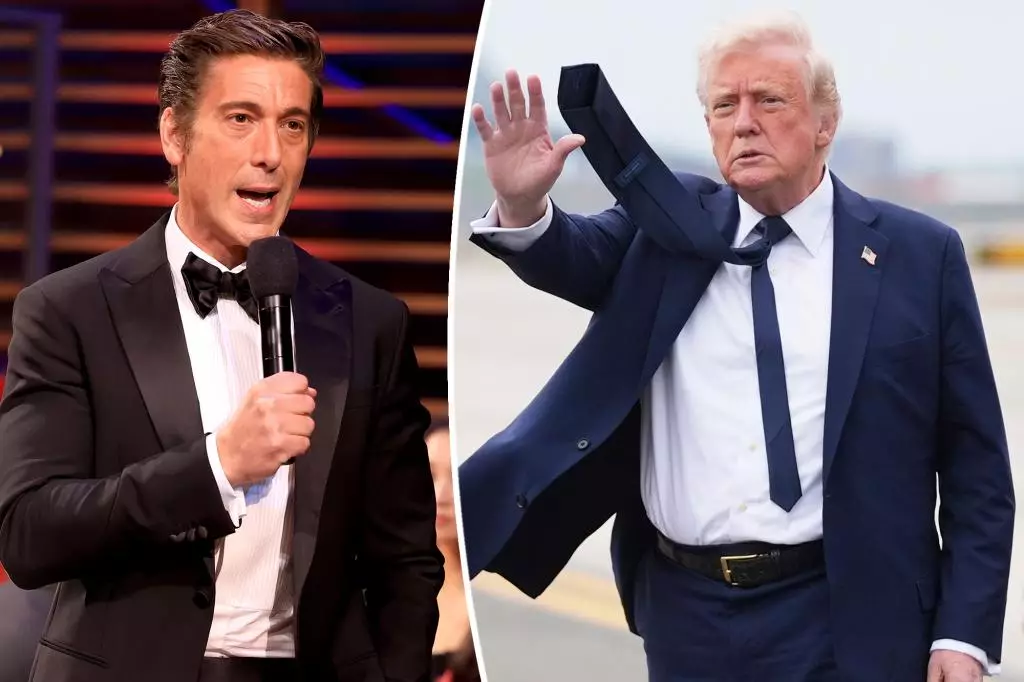In the evolving landscape of American journalism and political discourse, few relationships are as fraught as that between Donald Trump and the mainstream media. A recent situation revealed just how complex such dynamics can be when ABC News planned a high-stakes interview with President Trump. Yet, shockingly, it was determined that the favored figures of ABC’s flagship news program, David Muir and George Stephanopoulos, would not be leading this wide-reaching conversation. The choice instead fell to Terry Moran, a lesser-known correspondent. This decision reflects not only the present-day realities of journalistic ethics and access but also the shadow cast by Trump’s contentious history with the mainstream media.
A Personal Vendetta
What stands out in this scenario is the personal animosity that Trump harbors towards Muir. Their conflict traces back to a fierce presidential debate where Trump felt besieged by the grilling he received, allegedly thinking of it as a “one against three” situation. The fallout from this encounter wasn’t merely rhetorical; Trump has labeled Muir as “fake news” and even went so far as to mock his appearance. This level of disdain from the most powerful individual in the country underscores a pattern in which the media’s role as a watchdog often morphs into a battleground for personal grievances. Critics may argue that such a hostile stance diminishes the credibility of the press.
Choosing the Interviewer
Allowing Moran to conduct this pivotal interview raises eyebrows within media circles. The question lingers: is it an admission of fear on the part of the network, or a calculated move to mitigate potential conflict? It seems counterintuitive that a major network would forego the opportunity to feature its top journalists in favor of someone with less name recognition. While some insiders consider the decision “nuts,” they also recognize it as an avoidance strategy—a means to sidestep the barrage of attacks that might ensue if Muir or Stephanopoulos were at the helm.
The Implications of Defamation Settlements
This isn’t the first time a network has found itself negotiating the precarious balance between journalistic integrity and executive power. ABC’s past settlement of a defamation lawsuit filed by Trump—stemming from comments made by Stephanopoulos—further complicates the relationship. Such settlements reflect a growing trend where fears of backlash can lead to self-censorship within media organizations, ultimately jeopardizing the independence that journalism is meant to uphold. Critics argue that this compromises the very purpose of the press, reducing it to a mere tool of the powerful rather than an entity that holds figures accountable.
The Future of Press and Power
The fallout from this interview decision signifies a troubling trend in democracy’s relationship with the media. As President Trump continues to mobilize his base with claims of “fake news,” the fabric of accountability seems to fray. The intersection of politics and media is an arena fraught with tension, and the choices made by news organizations in responding to that tension will shape the future of public discourse. One must ponder whether the art of journalism can thrive amidst such raw animosity and whether the truth has any place in a world dominated by personal vendettas and grievances. The implications extend beyond individuals; they touch the very core of what it means to live in a democracy where the truth is often obscured by power struggles.

